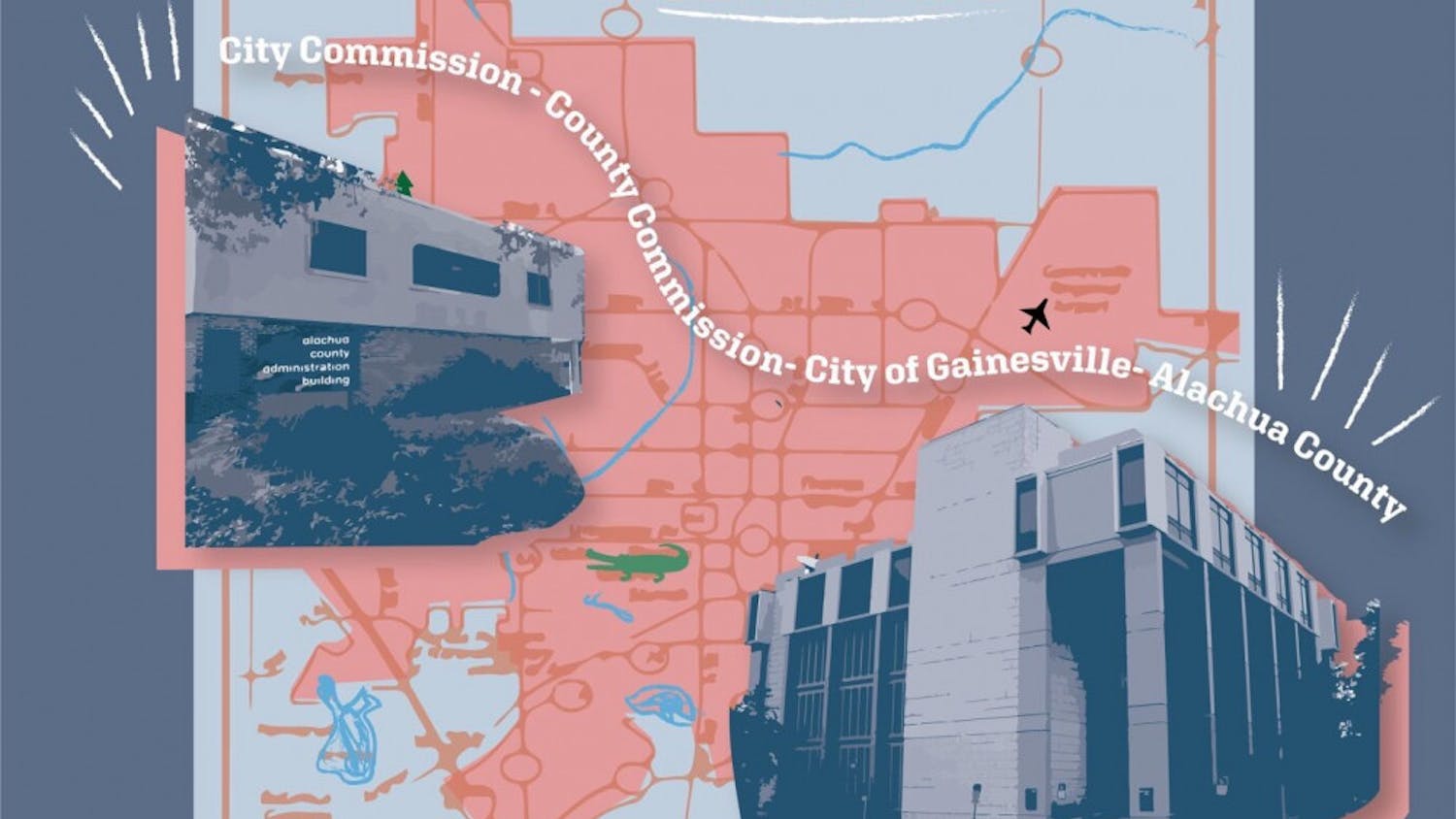In 2016, a Tesla driver was killed in a crash in Florida when his car, operating on Autopilot mode, failed to recognize a large truck crossing into its path. Last March, a driver in California died after his Tesla, also on Autopilot, hit a roadside barrier and caught fire.
These incidents make safety in the early stages of vehicle automation a concern as two driverless buses are set to begin operating in downtown Gainesville by Aug. 20.
The buses, manufactured by the company EasyMile and operated by Transdev Services, are part of a three-year, four-phase testing project being conducted by UF and the Florida Department of Transportation. The latter is providing $2.7 million for the project.
Phase One was in April when a driverless bus began driving a route along Southeast Second Avenue and onto a portion of Main Street. There was an operator on board as a failsafe.
The bus mapped its route and stops onto its hard drive. The bus was taken off the road in May, and the information it gathered will be transferred to a second bus that will hit the streets in August.
The final phase of the project will increase the fleet to four buses, which will connect UF and the downtown area near Depot Park. They can reach a maximum speed of 25 mph but normally won’t exceed five to 10 mph due to the frequency of stops, City of Gainesville spokesperson Chip Skinner said.
“We’re very confident that at the slow speeds it will be moving that we won’t have the same impacts that Tesla vehicles have,” Skinner said.
Transdev already has driverless buses operating in Babcock Ranch, Florida. However, that community is still under construction and not fully populated. The busy streets of Gainesville and the area around UF create a more intricate course for the buses.
Steven Shladover, a research engineer at the University of California, Berkeley who’s been researching road vehicle automation systems for more than 40 years, said driverless vehicles often can’t tell the difference between a candy wrapper and a person. The vehicle will brake for either depending on the occasion.
“They don’t have the intelligence yet to be able to handle the full range of the situations that they’re gonna encounter,” Shladover said. “If they’re on the campus, they’re probably gonna have to interact with a lot of pedestrians, a lot of bicyclists... That’s a challenging combination.”
He suspects it’ll be a long time before the buses can operate without a human on board as a precaution.
A safety operator will ride along at the beginning of the project and no timetable is set for when the buses will drive unaccompanied, Gainesville spokesperson Bob Woods said.
The Gainesville Regional Transit System and Transdev will also have the ability to monitor the buses and take control if a dangerous situation arises, Skinner said.
Once up and running, Skinner said the driverless buses will be in service Monday through Friday from 7 a.m. to 5 p.m. and will be free to all riders during the three-year testing period.





